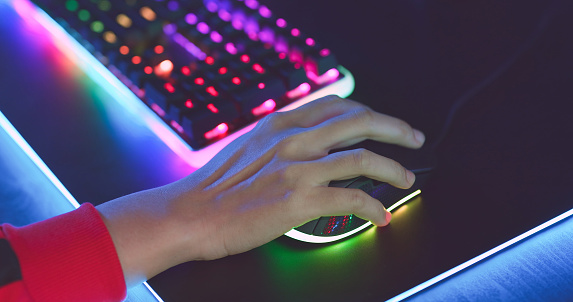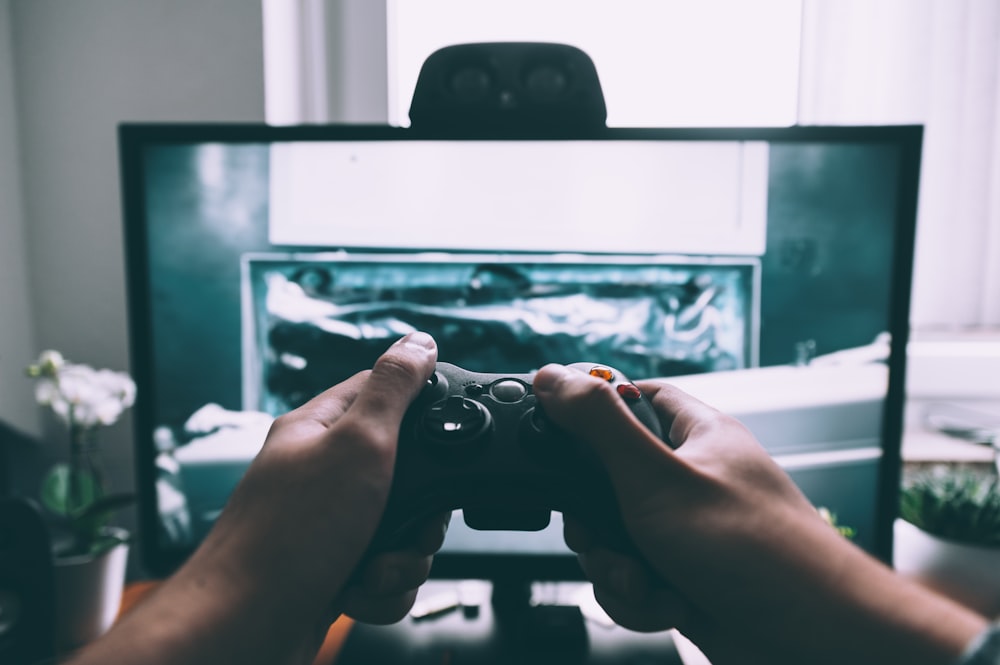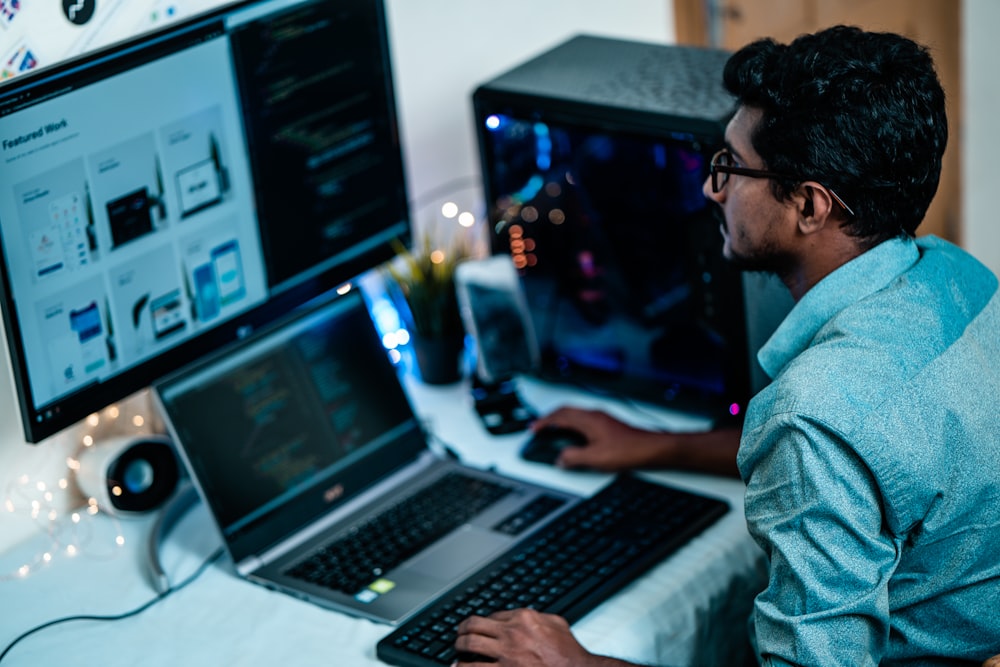PC gaming is a booming industry, with more and more people getting into it every day. Whether you’re a hardcore player or just a casual gamer, you’ll likely want to set up a PC so that you can enjoy some games whenever you feel like it. Why Does Gaming PC Take So Long to Boot?
The most common reason your gaming PC may be taking too long to boot is that it is running out of storage space. This would be likely due to Programs that are loaded as the computer starts up remain active in memory
However, one of the downsides to having your very own machine is that it takes a long time to boot up. The main reason for this is that your PC has to go through a booting process before you can actually play any games.
Unfortunately, the amount of time you have to wait can be incredibly frustrating. After all, you’re paying good money for a machine that is supposed to last you a long time.
This article will explain the different types of booting processes, as well as the causes of slow boot times and suggestions on how to speed them up.

Related Article: Why does my Gaming PC Keep Restarting?
What is a Booting Process?
When you turn on your computer, it goes through a booting process. This is where the system checks what programs need to be opened and loads them into memory. It also processes any commands that were saved in your computer’s RAM.
In order to speed up your boot time, you might want to disable any unnecessary programs or start-up items. These are programs that automatically open up when the machine boots up.
They take up valuable space and can slow down the booting process substantially. You should also close any programs that are currently running in the background before starting a game or opening any other application.
Programs like antivirus software, web browsers, music players, and email clients all consume memory and will cause your PC to take longer to load games.
Finally, make sure that you have enough free space on your hard drive for the games you plan on downloading or installing. If there isn’t enough space for the game to install or save data, this will cause it to load slowly too!
How Does a Gaming PC Boot Up?
A PC booting up can be a long and tedious process. It takes a certain amount of time for the hardware to load up, and then it has to run through an operating system before you can actually start playing games.
There are two types of booting – cold booting and warm booting. Cold booting is when your computer starts up without loading any programs.
This type of boot will clear out all the data in the RAM, which means that it’s likely to run faster because all programs are shut down while you’re doing this type of restart.
You’ll also see that there’s more hard drive space available on your machine because it won’t have any programs running in the background.
Warm booting is when you start up your computer with one or more programs running in the background – like if you were using some other program before starting your game.
The difference between cold and warm boots is that there will still be some programs running when you do the second type of restart, so it takes a little longer for your PC to load things up again.

Types of Booting Process in a Gaming PC
There are two different types of booting processes in a gaming PC: the BIOS and the Operating System. The BIOS is the first process that your machine goes through before it can start up Windows.
The BIOS checks to see if there are any hardware problems, such as if your RAM is installed properly or if your hard drive is connected. It also looks at what RAM configuration you have- for example, single channel or dual channel- and sets up your system accordingly so that it will work at an optimal level.
The operating system (OS) is a secondary process that boots after the BIOS has completed its tasks, and this is where you’ll be able to actually play games once it finishes loading.
You may want to buy a gaming PC with Windows preinstalled on it because this will make it easier for the OS to load quickly.
Causes of Slow PC Booting
There are many things that can slow down your PC booting process. These include: – Having too many programs open at once – Too many applications installed on your PC – Too many background processes running – A virus or malware slowing your PC down – A lack of necessary RAM on your computer
The impact on the boot time will depend on a number of factors, including your PC’s configuration. But if you’re noticing that your machine is booting up slower than it used to, there are a few things you can do to speed things up.
For one, make sure that your PC boots from the hard drive. Your PC might have been set to boot from the CD/DVD ROM or USB storage device by default when you installed it for the first time.
If this is the case, try changing the settings so that it boots from your hard drive instead. You can usually change these settings in BIOS (Basic Input Output System) by going into the boot order and changing where your computer starts looking at first when starting up.
Another thing to look at is how much space you have on your hard drives – specifically, what type of drive they are. Solid-state drives are much faster than traditional HDD drives because they store data digitally with no spinning disks and moving parts which slow down access times.
If you’ve had your computer for a while and think it might be slowing down because of age or an older HDD, consider upgrading to a solid-state drive!
Finally, make sure you have enough RAM (random access memory). The more RAM you have, the faster your computer will run and the less time it will take to start up. Luckily, upgrading RAM is often cheaper than replacing other parts of your PC so if you have any doubts
Why does my gaming PC take so long to start?
One of the most common causes of a slow boot time is applications running in the background. For example, if you’re watching Netflix while you’re trying to boot up your PC, this will slow the process down significantly.
It’s also possible that some programs take more time to load than others. This can cause a delay in your booting process. Another reason for an excessively long start-up time is because of your device drivers.
It might be worth doing a clean installation of your operating system and re-installing all the necessary drivers to ensure that everything is running smoothly.
One of the main reasons why your gaming PC takes so long to start is due to all the programs you have open. When you first sign in to your computer, these programs start running in the background and can affect the time it takes for your machine to boot.
If you want to speed this process up, close all those programs before going into Windows and then re-open them after you’ve logged in.
You might also want to consider switching to a lighter desktop environment or even removing unneeded software from your system if you still find that your computer is taking too long to boot up. Another reason for slow boot times is that an update was installed recently.
If this is the case, it will take a few minutes for Windows to fully install that update on startup. You can avoid this by installing updates manually when they become available instead of waiting for them automatically.

How long does it take for a gaming PC to boot up?
PC gaming is on the rise, and with it comes the need for PCs to be able to handle all of the intensive graphics. These machines typically take 45 seconds or less to boot up, but that isn’t the average.
On average, PC gamers are likely to have a wait time of about 2 minutes before their machine is ready to play any games. This is a substantial amount of time if you’re just sitting around waiting for it to finish booting up.
The truth is that gaming computers can take anywhere from 30 seconds to 3 minutes depending on how powerful your computer is and what operating system you’re running.
Computers will boot up in under 45 seconds if they have a solid-state drive (SSD) and Windows 10 on them. These two factors will speed up the process significantly, but don’t worry if you don’t meet these criteria.
70 seconds or less: If your PC has an SSD and Windows 10, it should boot in about 70 seconds. This is still a long time to wait before you can start playing any games, but at least you’ll know that the machine is working properly.
100 seconds or more: If it takes your computer 100 seconds or more to boot up, then there might be a problem. This is especially true if your PC has an older hard drive or low RAM.
In this case, you may want to invest in upgrading the hardware so that your computer boots faster, or consider getting rid of the PC altogether for some other type of gaming device like a consol
How can I make my PC boot up faster?
The main reason for slow booting is the tendency of PCs to download and install updates automatically. Thankfully, this problem has an easy solution: all you have to do is disable automatic updates.
If you prefer to keep automatic updates on, there are other options for speeding up the process. For starters, you can get a solid-state drive (SSD) which will load much faster than a traditional hard drive. If an SSD isn’t in your budget, then your next best option is to defragment your PC regularly.
You should also log out of unnecessary applications before shutting down your PC and try not to have too many programs running at once. The bottom line is that it really doesn’t take long for your PC to boot up if you take the time to set it up properly in the first place!
The computer takes a long time to boot up windows 10
As mentioned, the main reason for a computer taking a long time to boot up is due to the booting process. This process is basically your PC’s way of starting up and getting ready for anything you want to do.
If you have Windows 10 on your machine, there are actually two different ways that it can boot up:
1) The regular way – this takes around 20 seconds and then opens the Windows 10 desktop without any notification or prompts.
2) Fast startup – this boots much quicker at around four seconds, but it also starts up Microsoft’s default apps as well as updates in the background while running.
The problem with fast startup mode is that it interrupts your work if you want to move on to something else quickly. However, if you want a faster boot time, it could be worth using this mode instead of waiting 20 seconds for your PC to load.
What causes slow boot times? The main thing that slows down boot time is when all of your programs are updating in the background. Programs like Skype and Google Chrome will need updates sometimes, so they will get downloaded and installed automatically when you start up your PC.
This can cause slowdowns if there are too many other programs being updated at once or if there are updates that take a long time to download and install. There are ways to fix this issue though! You can make sure updates don’t start downloading until after you’ve booted by disabling automatic app updates from the settings

How do I fix a slow startup Computer?
If your computer is taking a long time to boot, there are a few things you can try to fix the problem. The first thing you should do is check the startup programs.
A number of programs run automatically when your computer boots and these programs can slow down the process. Your computer starts by loading up your BIOS settings and then loads up any necessary drivers before loading Windows.
If these startup programs are slowing down your booting process, there are a number of ways to control them so that they don’t affect your system’s performance as much. Another suggestion for speeding up your PC’s startup time is to invest in an SSD drive.
These drives have no moving parts and can load files faster than traditional hard drives. Installing one of these will definitely make it easier for your machine to get going in the morning!
Why is the HP laptop taking too long to start Windows 10?
The article, “Why Does My Gaming PC Take So long to Boot?” is about how a gaming pc will take longer to boot up. There are different types of booting processes, including cold boots and warm boots.
A cold boot is when your computer boots up from a power-off state, and a warm boot is when you reboot your PC without turning it off. One of the causes of slow start times is too many programs running on startup.
This can be fixed by opening your task manager and closing any unnecessary programs that you don’t really need to use at startup.
Another cause could be using a hard drive as opposed to an SSD. Hard drives typically take longer for programs to load because they have more storage space than SSDs do.
The easiest way to fix this issue would be by installing an SSD so that your operating system can run faster than if you were using a hard drive.
How do I make games run faster?
One of the most common reasons for slow boot times is an old hard drive. Your PC will be able to boot up much faster if you buy a new, solid-state drive (SSD).
An SSD is a type of hard drive that loads data much faster than traditional hard drives. This means it should speed up your computer’s startup time and make games run faster. If you have an older PC and need a speed boost, it can be worth buying a RAM upgrade as well.
Your RAM acts as temporary storage for your PC while you’re using programs and playing games. If you increase the amount of RAM on your machine, your PC will be able to load and run more programs at once without slowing down or crashing.
What is the fastest boot time?
The best boot time is going to be the one with the fastest startup speed. The time it takes for your PC to go from being fully powered off to fully booted and ready for use is known as startup time.
Some PCs might take up to a minute or more, while others might take a mere few seconds. A fast startup time is essential if you want the PC to feel like it’s working faster so that you can get back into gaming quicker.
When you turn on your machine, there are a few different processes that are occurring. Your operating system will load and then your computer will launch all the necessary programs, such as data-recovery software and antivirus software, before loading any other applications that you need.
This process can take anywhere from 15 seconds up to three minutes depending on how many applications you have installed on your machine and what programs are running in the background.
FAQs
Why does my gaming PC take so long to boot?
There are a few possible reasons for slow boot times. If you haven’t cleaned your machine in a while, it could have accumulated a lot of junk and unnecessary files that take time to open. For example, if you have old software programs, redundant data or unused programs still installed on your PC, this will cause your system to work harder and therefore take longer to boot up. Another possible reason is that the BIOS settings on your PC are not set as they should be.
What are some quick ways I can speed up my gaming PC?
If you want to find out what’s taking up most of the space on your hard drive so you can delete it, there are many tools available online that can help you do this easily. To speed up the sluggishness of Windows 10, we recommend optimizing it by running Disk Cleanup tool every month or so and removing any temporary files from downloads/uploads as well as any unwanted apps from startup programs list.
Why does my PC take so long to boot?
There are many reasons why your PC might take a while to boot. The speed of your computer, the configuration, and the amount of programs you have running in the background are all factors that can contribute to a slow boot time
How can I speed up the process?
There are several ways you can speed up your PC’s boot time. One method is to minimize the number of programs running in the background — this will help clear some space for important processes like booting up. You could also switch from a hard disk drive (HDD) to an SSD, which typically boots faster than an HDD. Finally, you could try shutting off any unnecessary USB devices. These devices use power even when they aren’t in use and can cause unnecessary delays while they’re starting up
Why is Laptop taking too long to start windows 11
Laptops are powerful devices that allow you to take your work on the go. They also allow you to play games or surf the web anywhere in the house.Despite their usefulness, laptops can sometimes be slow when booting up. This is because they have to complete a variety of tasks before they have completed loading and show the sign-in screen. There are many resources online that will guide you through laptop startup times, but let’s break down what causes the slow boot time and what you can do about it.
Conclusion
Why does my Gaming PC take so long to boot? It might be that you have a lot of programs running in the background, or it might just be the type of computer you have. Getting your PC’s boot time to 45 seconds or less is possible, and it can be done with the right know-how.
You’ve got a great gaming PC and you’re dying for it to go faster. There are a few things you can do to make your gaming PC boot up faster.
You could use a lightweight browser like Firefox or Chrome. You could also disable the programs that start up with Windows in the background, like iTunes and Adobe Acrobat. If you’re not sure how to do that, read the steps below:
Open Task Manager by right-clicking the taskbar and selecting it. -Click the Startup tab -Select the programs you’d like to disable from launching when your PC boots up. -Click OK and restart your computer. Now you have a gaming PC that boots up in just 45 seconds or less!
